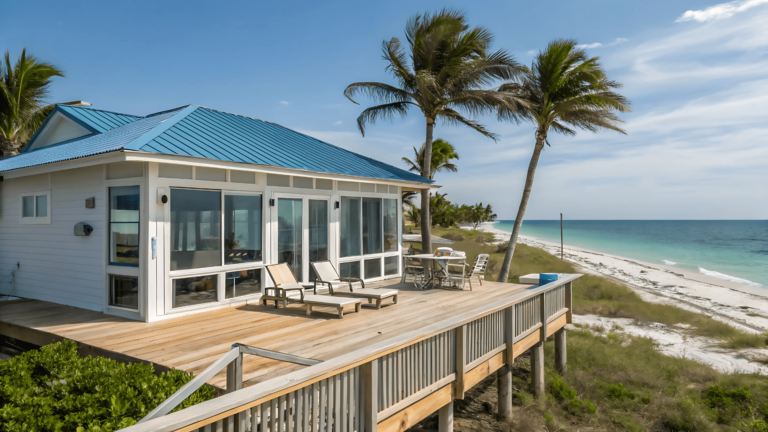VA loan eligibility requirements determine whether veterans, active-duty service members, and certain surviving spouses qualify for this powerful home loan benefit. Eligibility is based on service history, including active-duty duration, wartime service, and National Guard or Reserve status. A Certificate of Eligibility (COE) is essential to prove qualification. Factors like dishonorable discharge or insufficient service time can disqualify applicants. Understanding these rules ensures eligible individuals can access zero down payment, no PMI, and competitive rates
Table of Contents
ToggleWhat is a VA Loan?
Before we get deep, quick refresher: a VA loan is a mortgage backed by the U.S. Department of Veterans Affairs. That “backed” part is key—it means that private lenders offer these loans, but the VA guarantees a portion of it if the borrower defaults. Because of that, you usually get:
- 0% down payment
- No PMI (Private Mortgage Insurance)
- Competitive interest rates
- And relaxed credit requirements
Cool deal, right? But here’s the catch: not everyone who served automatically gets access. The VA loan eligibility requirements are what make or break this whole thing.
First Filter: Your Service History
The VA’s super clear on this—your service record is the first stop. Here’s what usually qualifies:
Active-Duty Service Members
If you’re currently active, you qualify if you’ve completed at least:
- 90 continuous days of active service
That’s it. If you’re still in and already hit your 90 days, you’re in.
Veterans
If you’ve served in the past, your eligibility depends on when you served:
| Service Period | Required Active Duty Time |
|---|---|
| WWII (Sept 16, 1940 – July 25, 1947) | 90 total days |
| Korean War (June 27, 1950 – Jan 31, 1955) | 90 total days |
| Vietnam War (Aug 5, 1964 – May 7, 1975) | 90 total days |
| Post-Vietnam (May 8, 1975 – Sept 7, 1980 OR Oct 16, 1981 for officers) | 181 continuous days |
| Post-1980 Service | 24 continuous months OR full call-up period (at least 181 days) |
| Gulf War (Aug 2, 1990 – present) | 24 months OR full call-up (minimum 90 days active duty) |
National Guard and Reservists
This one gets tricky. You’re typically eligible if you’ve served:
- 6 years in the Selected Reserve or National Guard AND
- Were honorably discharged, or
- Placed on the retired list, or
- Transferred to Standby Reserve or other Ready Reserve after honorable service
Or if you were called to active duty for at least 90 days during wartime—you may qualify that way too.
What if You’re a Surviving Spouse?
VA’s also got your back if you’re a surviving spouse in certain cases. You can apply if you’re:
- A spouse of a service member who died in the line of duty or from a service-connected condition
- Unmarried (or remarried after age 57 and after Dec 16, 2003)
- A spouse of a totally disabled veteran whose death wasn’t necessarily service-related—but who was rated disabled for 10+ years before death
Important: You’ll need something called a COE—Certificate of Eligibility. We’ll talk more about that—it’s your golden ticket.
What Disqualifies You from a VA Loan?
Let’s not sugarcoat it—some things are going to block you. Here’s a quick list of possible disqualifiers:
- Dishonorable discharge (yep, this is a hard stop)
- Not meeting minimum service requirements
- No record of service during wartime or qualified peacetime
Let me be real—some people assume any military service unlocks the benefit. Not always true. The VA loan eligibility requirements are tight in some areas.
What If You’re Not Sure You Qualify?
This is where people get stuck. They’re not 100% sure, and they kind of freeze up. Or worse, they take bad advice from a forum.
Here’s what I tell them:
- Request your Certificate of Eligibility (COE). This is your proof. You can get it through the VA website or ask your lender to help you pull it within minutes.
- If you’re unsure about your discharge status—file VA Form 26-1880 and send your DD-214 along with it.
- Still stuck? Call a VA-approved lender. They’ve seen this a million times—pull them in.
The VA doesn’t play games. If you meet the requirements, they’ll tell you. If not, find out why so you can look into appeals or alternative programs.
How Does Deployment Impact VA Loan Eligibility?
If you were deployed, you’re probably wondering—does that count toward your eligibility?
Short answer: yes. Deployment time usually counts toward your required active-duty service, even if you were out of the country. The catch is, it has to be federally activated service (like Title 10)—not just weekend drill or training. That’s a big difference, and a lot of folks miss it.
FAQs
1. Can I get a VA loan if I was dishonorably discharged?
No. A dishonorable discharge disqualifies you from VA loan benefits. You can request a review or upgrade from the VA, but don’t apply unless that status changes.
2. I served in the Reserves for 4 years—can I get a VA loan?
Only if you completed 6 years OR were called to active duty and met required service time. Four years in Reserves alone doesn’t usually qualify.
3. What is a Certificate of Eligibility?
Think of your COE like your VIP pass—it proves to lenders that you’re officially eligible for the VA loan. They won’t issue one without it.
4. My spouse died in service—do I qualify?
Yes, if you’re an eligible surviving spouse. There are some exceptions if you remarried, but a lot of spouses qualify and don’t even know it.
5. How can I check if my service period counts?
The best way is to check this official VA eligibility chart or contact a VA lender—they’ll tell you quick.
Closing Thoughts
You’ve got a shot at owning property without breaking the bank. VA loans might just be the hack you need. But only if you know where you stand. Look, the VA loan eligibility requirements can be confusing, but they’re also one of the most generous benefits out there for those who qualify. Stick around—I’ll walk you through how to unlock that benefit next. If you’re thinking about investing in real estate or using your VA benefits smart,

